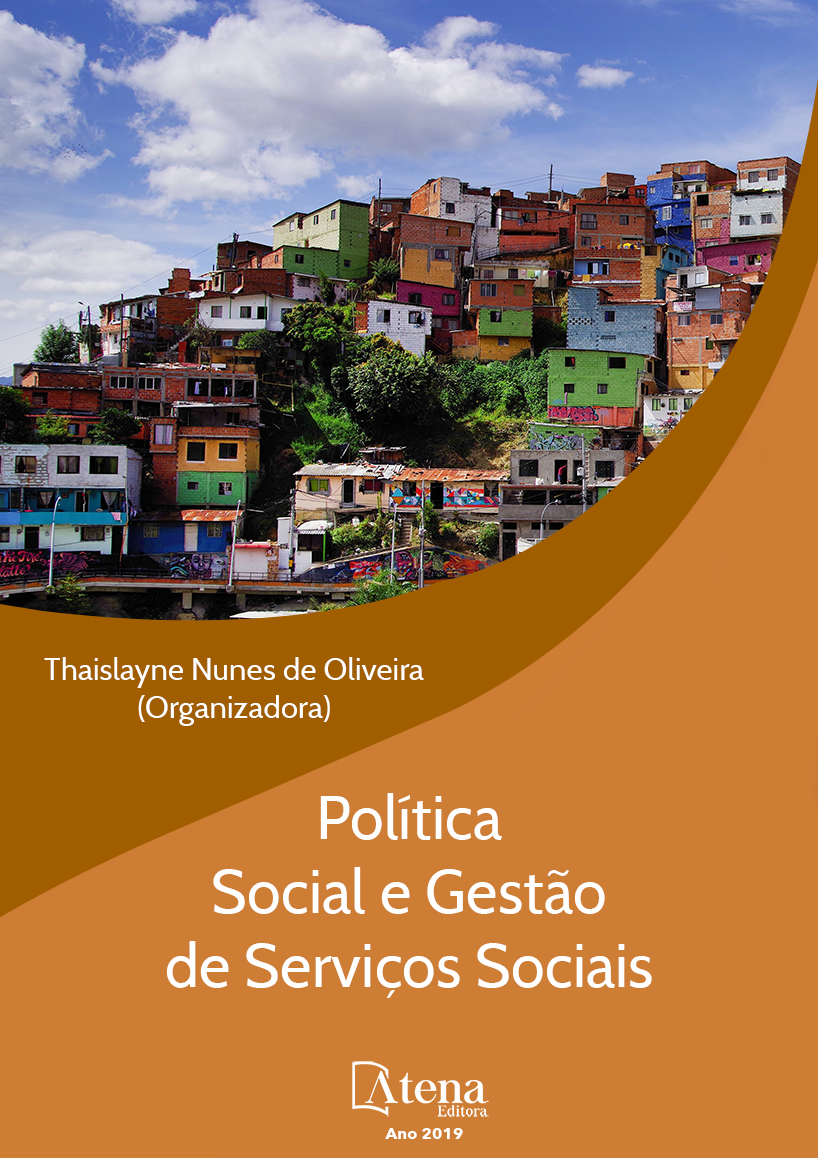
TEORIAS DO DESENVOLVIMENTO E PÓS-DESENVOLVIMENTO: UMA ANÁLISE EPISTEMOLÓGICA DOS DISCURSOS CIENTÍFICOS E PRÁTICAS SOCIAIS EMERGENTES NA AMÉRICA LATINA EM SUAS BASES DECOLONIAIS
O trabalho tem como objetivos
apresentar uma análise sobre as teorias do
desenvolvimento e pós-desenvolvimento
nos discursos e práticas sociais emergentes
na América Latina e identificar fundamentos
históricos de influências filosóficas,
antropológicas, sociológicas e políticoeconômicas
nas análises geográficas sobre o
desenvolvimento. A metodologia possibilitou
estabelecer nexos teórico-conceituais
na investigação do discurso científico
contemporâneo e na análise da problemática
econômica espacial, no contexto da globalização
e da teoria social crítica. Permitiu a troca de
experiências no campo acadêmico, com a
(con) vergência e a (di) vergência de ideias
entre pesquisadores das áreas de Geografia,
História, Ciências Sociais, Direito, Arquitetura,
Saúde e Pedagogia com o intuito de construir
coletivamente práticas reflexivas. A análise
da diversidade de práticas emergentes e
experiências de movimentos sociais libertários
e condizentes ao “buen vivir” na América
Latina auxiliou no processo de compreensão
das origens da cultura latino-americana, da
sociedade e dos grupos sociais em processo de
luta e resistência contra as formas opressoras
de vida. A síntese analítico-reflexiva esclareceu
conceitos sobre o desenvolvimento, visando
práticas sociais para além do conflito e para a
análise da conjuntura política e social – porta
aberta para as teorias decoloniais em processos
de difusão na América Latina e no sistemamundo
globalizado. O trabalho enfatizou o saber
mundializado sob outras bases e formas de
desenvolvimento, em consonância com a teoria
social e com o pensamento latino-americano
que se constrói e se transforma coletivamente,
por meio de práticas reflexivas
TEORIAS DO DESENVOLVIMENTO E PÓS-DESENVOLVIMENTO: UMA ANÁLISE EPISTEMOLÓGICA DOS DISCURSOS CIENTÍFICOS E PRÁTICAS SOCIAIS EMERGENTES NA AMÉRICA LATINA EM SUAS BASES DECOLONIAIS
-
DOI: 10.22533/at.ed.5671925111
-
Palavras-chave: Desenvolvimento e Pós-desenvolvimento – Discursos e Práticas Emergentes - Teorias Decoloniais na América Latina
-
Keywords: Development and Postdevelopment - Emerging Discourses and Practices - Decolonial Theories in Latin America
-
Abstract:
The objective of this paper is to present an analysis of development and
postdevelopment theories in emerging social discourses and practices in Latin America
and to identify historical foundations of philosophical, anthropological, sociological
and political-economic influences in geographical analyzes of development. The
methodology made it possible to establish theoretical and conceptual links in the
investigation of contemporary scientific discourse and in the analysis of spatial
economic problems, in the context of globalization and critical social theory. It allowed
the exchange of experiences in the academic field, with (con) and (di) vergence of
ideas among researchers from the areas of Geography, History, Social Sciences, Law,
Architecture, Health and Pedagogy in order to collectively build reflective practices.
The analysis of the diversity of emerging practices and experiences of libertarian
social movements that fit the “buen vivir” in Latin America helped in the process of
understanding the origins of Latin American culture, society and social groups in the
process of struggle and resistance against oppressive forms of life. The reflexiveanalytic
synthesis clarified concepts about development, aiming at social practices
beyond conflict and for the analysis of the political and social conjuncture - an open
door for decolonial theories in diffusion processes in Latin America and the globalized
world-system. The work emphasized globalized knowledge under other bases and
forms of development, in line with social theory and Latin American thought that is built
and transformed collectively through reflective practices.
-
Número de páginas: 15
- MARIZA FERREIRA DA SILVA


